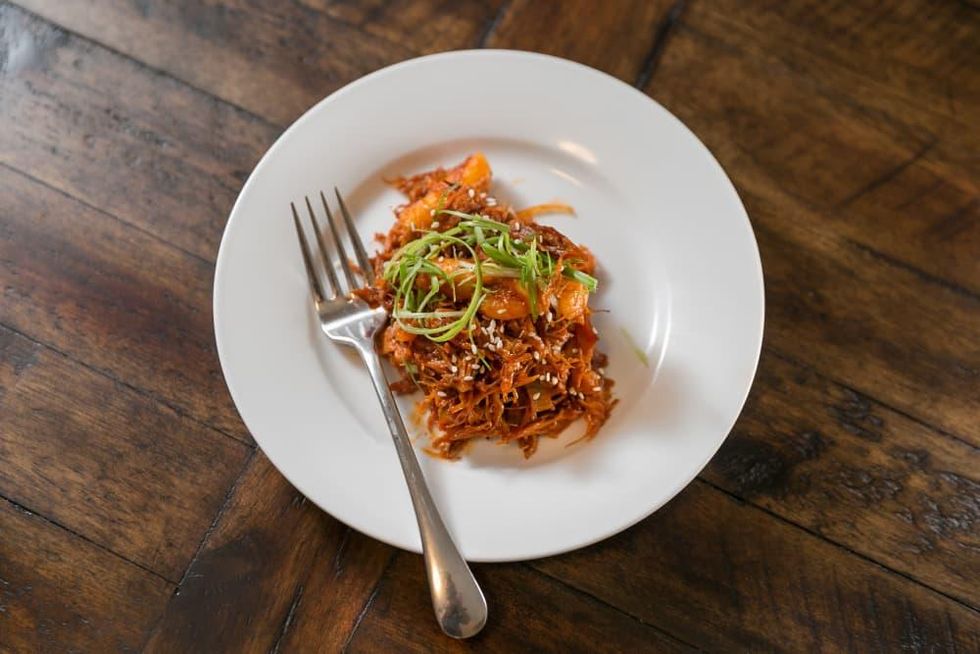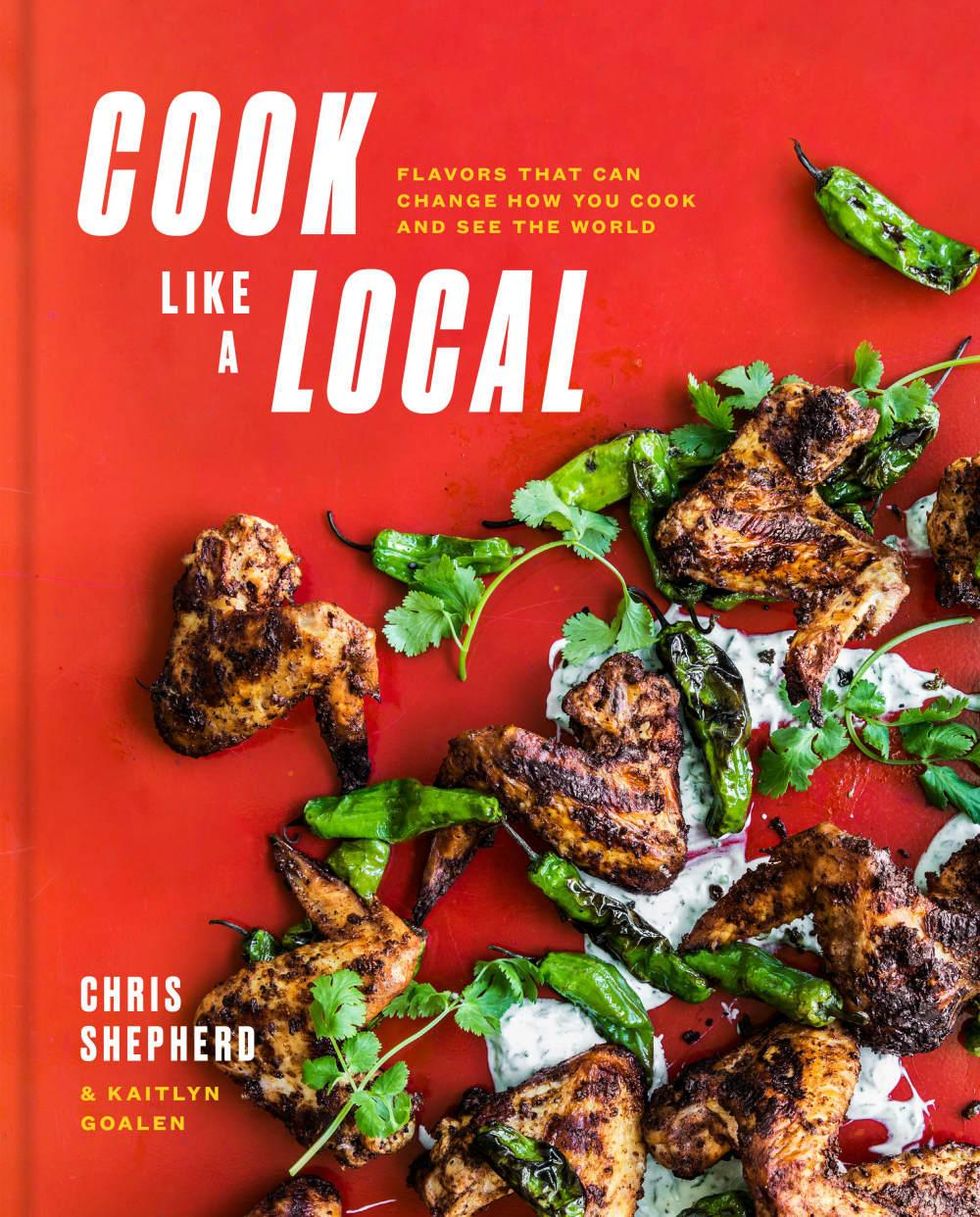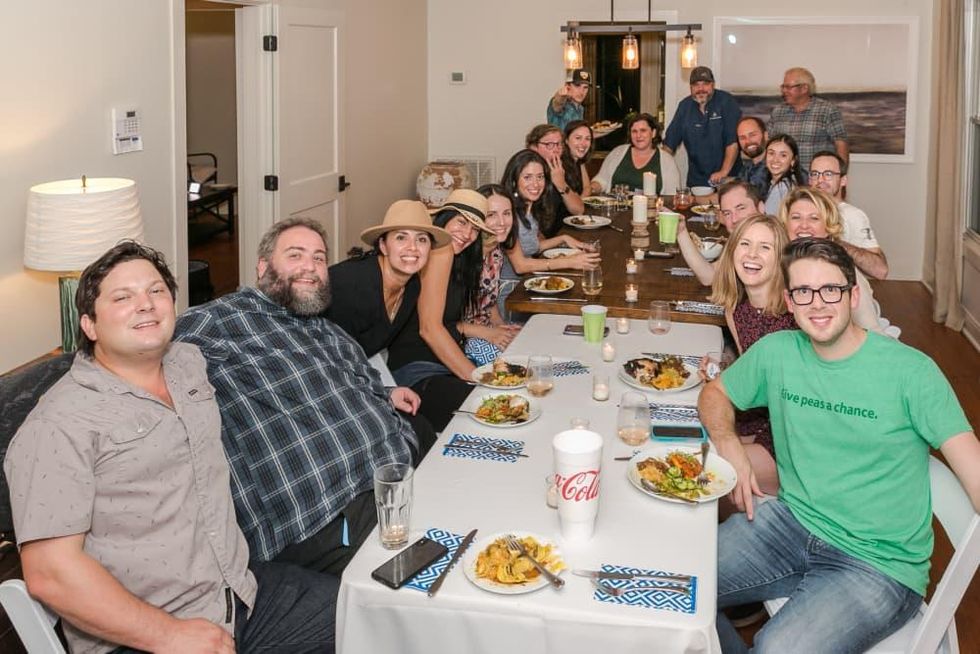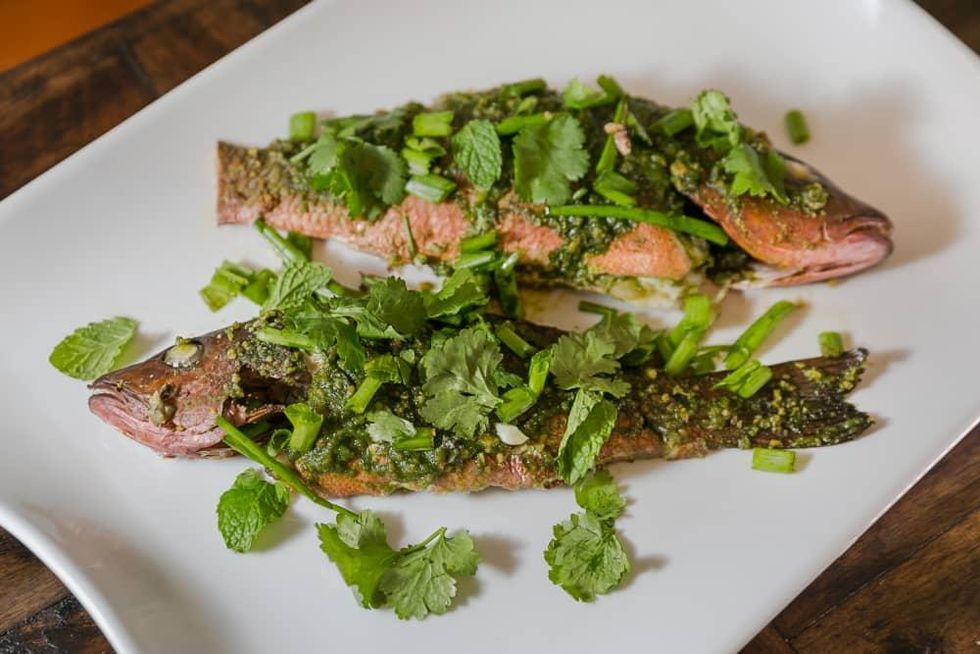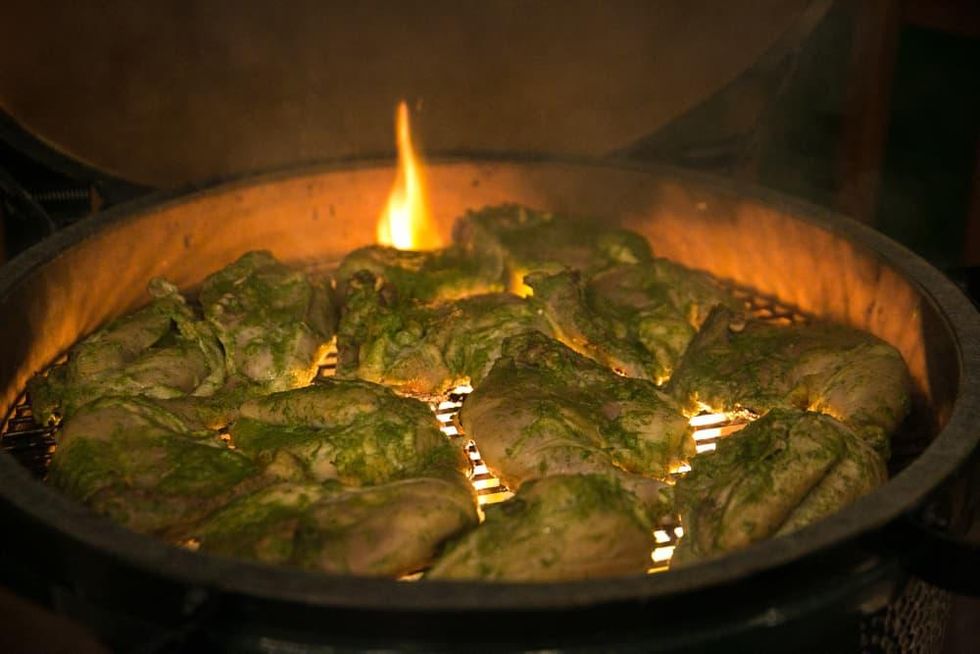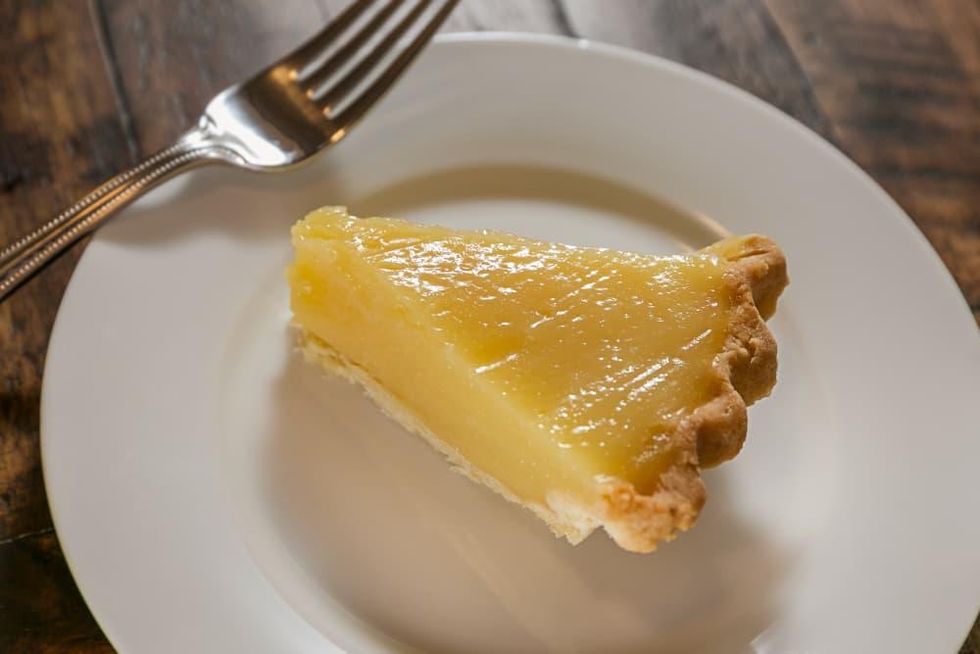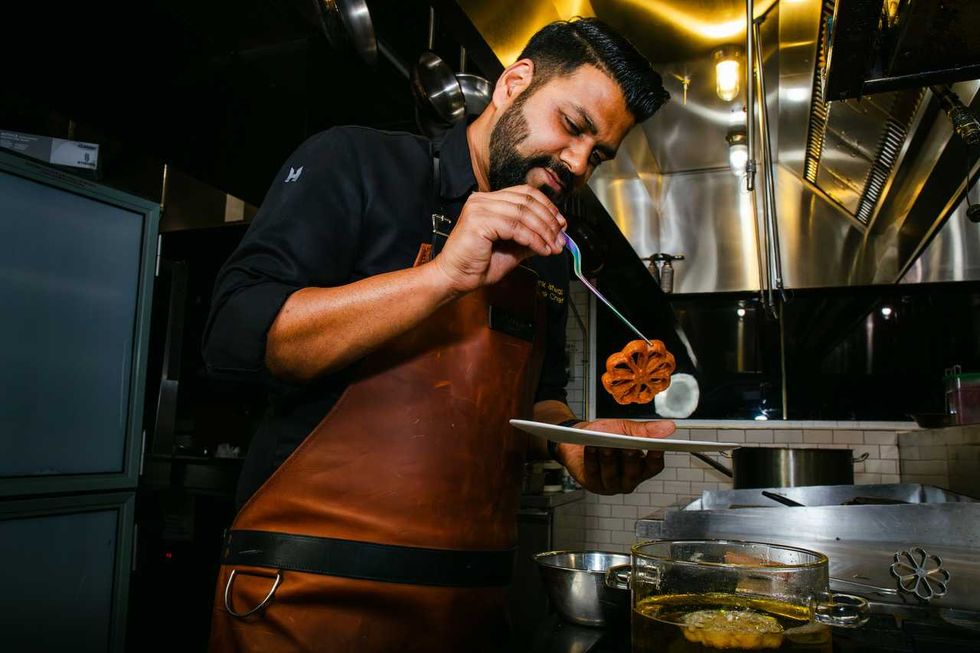cook like a local
Exclusive Heights dinner party puts Chris Shepherd's new cookbook to the test
By now, most food-obsessed Houstonians know that chef Chris Shepherd just published his first cookbook, Cook Like a Local, this week.
In this case, “local” means the immigrant traditions that the James Beard Award winner used to “tell the story of Houston food” at his acclaimed restaurant Underbelly, and that continues to inspire his restaurants the Hay Merchant, Georgia James, One Fifth, and UB Preserv. The six chapters center around fish sauce, chiles, soy, rice, spices, and corn. Working with co-author Kaitlyn Goalen, Shepherd uses these ingredients as a framework to share recipes and stories of the people who guided him.
Several local media members received advance copies of the book, which prompted an immediate thought. Let’s use the book to throw a dinner party and test the recipes. After all, Shepherd told CultureMap back in May that he expected people to cook from the book.
“I don’t want coffee table shit,” he said at the time. “I want this in people’s houses, in their hands, messy from use.”
Challenge accepted.
Tyler Horne helped organize the evening. The market manager for local non-profit Urban Harvest, Horne is both a passionate home cook and an authority on the local produce that Shepherd uses in his cuisine. With a few text messages, he had assigned to starters, vegetables sides, entrees, and dessert to a group of friends who gathered in The Heights to, well, cook like Chris Shepherd.
The menu included grilled, herb-marinated chicken; whole fish with nước chấm and peanut pesto; eggplant with spicy bean paste; spicy cucumber with jalapeño; masala bhindi okra; tater tot casserole; and two of Underbelly’s most famous dishes — Korean braised goat and dumplings and vinegar pie.
Horne sourced some of the ingredients from Urban Harvest’s Saturday farmers market on the campus of St. John’s School, including goat from Katerra Exotics and cucumber and okra from urban farm Finca Tres Robles. Not being much of a cook, this author contributed bottles of wine from Lieu Dit Winery purchased from Avondale Food & Wine at the suggestion of wine director Nate Rose.
Once Shepherd heard about the party, he decided to stop by to check on the group and offer a few tips, including specific guidance on how to grill the chicken properly.
To the authors’ credit, all of the home cooks reported the recipes are easy to follow. Even better, they legitimately tasted like the versions served at Shepherd’s restaurants. The photos above are taken of the dishes made at the party, and they illustrate how much the recreations look like the originals.
The eggplant, tater tots, and whole fish emerged as the night’s consensus favorite dishes. Because the fish is roasted, it needs very little tending to after it goes into the oven, which makes it great for a party.
Sure, some of the testers made a couple tweaks — adding a little extra lime juice to the fish or letting the eggplant bake a little longer to remove moisture — but those are minor changes. As one attendee noted, the event felt very much like Houston at its best: old and new friends coming together to share a meal built around the city’s diverse culinary influences.
Recipe: Korean braised goat and dumplings
For the goat
3-pound piece of bone-in goat leg
2 medium onions, roughly chopped
3 medium carrots, roughly chopped
6 celery stalks, roughly chopped 6 garlic cloves
For the stew
¼ cup vegetable oil
8 ounces cylindrical Korean rice cakes, cut into 1-inch pieces
½ medium white onion, thinly sliced
½ cup gochujang
¼ cup lager beer
4 tablespoons (½ stick) unsalted butter, chilled
¼ cup sliced scallion
- Braise the goat: Put the goat leg in a large stockpot and add the onions, carrots, celery, and garlic. Fill the pot with water so that the ingredients are completely submerged. Bring to a boil over high heat, then reduce to a gentle simmer over very low heat. Cover tightly and let simmer for at least seven hours, until very tender, checking occasionally to see if you need to add more water to keep the goat submerged.
- Drain, discarding the liquid and aromatics. When the goat is cool enough to handle, pull off all the meat, discarding any bones or tough cartilage. Set aside. (The pulled meat will keep in a covered container in the refrigerator for up to four days.)
- Prepare the stew: In a large skillet, heat the oil over medium-high heat until shimmering-hot. Add the rice cakes, spreading them out in a single layer. Cook, stirring occasionally, for about six minutes — let the dumplings get a little bit of golden-brown color in spots, and they might puff slightly. (Some recipes call for boiling rice cakes, but I much prefer the texture they get when pan-fried — they’ll be crispy on the outside and soft and chewy on the inside.)
- Add the sliced onion and the pulled goat meat and cook, stirring, until the mixture is well combined and warm throughout, and the onion has softened, about eight minutes. Add the gochujang and beer and cook, stirring to combine, for two to three minutes. Remove the pan from the heat, add the butter, and gently stir it in to enrich the sauce. Divide the stew among bowls and garnish with the scallion. Serve immediately.
---
Reprinted with permission from Cook Like a Local by Chris Shepherd & Kaitlyn Goalen, copyright © 2019. Photographs by Julie Soefer. Published by Clarkson Potter, a division of Penguin Random House, Inc.

